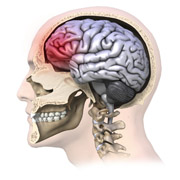Research and Innovation, UNL Office of

Center for Brain, Biology, and Behavior: Faculty Publications
Document Type
Article
Date of this Version
2021
Citation
Philosophical Transactions of the Royal Society B: Biological Sciences (2021) 376: 20200138
https://doi.org/10.1098/rstb.2020.0138
Electronic supplementary material is available online at https://doi.org/10.6084/m9.figshare.c.5252493 and appended to this version
Abstract
Uncertainty has been shown to impact political evaluation, yet the exact mechanisms by which uncertainty affects the minds of citizens remain unclear. This experiment examines the neural underpinnings of uncertainty in political evaluation using functional magnetic resonance imaging (fMRI). During fMRI, participants completed an experimental task where they evaluated policy positions attributed to hypothetical political candidates. Policy positions were either congruent or incongruent with candidates’ political party affiliation and presented with varying levels of certainty.Neural activitywas modelled as a function of uncertainty and incongruence. Analyses suggest that neural activity in brain regions previously implicated in affective and evaluative processing (anterior cingulate cortex, insular cortex) differed as a function of the interaction between uncertainty and incongruence, such that activation in these areas was greatest when information was both certain and incongruent, and uncertainty influenced processing differently as a function of the valence of the attached information. These findings suggest that individuals are attuned to uncertainty in the stated issue positions of politicians, and that the neural processing of this uncertainty is dependent on congruence of these positions with expectations based on political party identification. Implications for the study of emotion and politics and political cognition are discussed.
This article is part of the theme issue ‘The political brain: neurocognitive and computational mechanisms.’
Supplementary materials Haas et al 2021 PTRSB
Included in
American Politics Commons, Neuroscience and Neurobiology Commons, Other Political Science Commons, Social Psychology Commons


Comments
Copyright 2021, the Royal Society. Used by permission